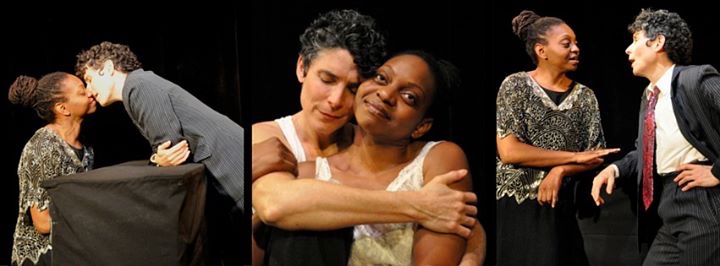Winds of War in Gay London, 1939

It is August, 1939 in London and all is confusion in the big city’s crowded streets. The government tests air raids sirens each day. Gas masks are being sold to tens of thousands of Londoners fearful of a German poison gas attack. The British government is trying desperately to shore up its relations with France to create a political alliance to oppose Adolf Hitler and his Nazis. Thousands of men are mobilized for a potential war (it stars on September 1). People are trying to turn their basements into air raid shelters. The Royal Air Force (RAF) is training more and more men for war.
Hundreds of Americans are fleeing London as quickly as they can by planes and cruise ships headed for America. Among them are Jimmy, a cross-dressing lesbian nightclub singer, and her girlfriend, Claire, a pianist and choral singer. Jimmy has finished her club dates and saved some money.
The pair has multiple problems. They are gay women living in a city that has strict anti-gay law. Claire is black and trying to get along as not only a gay woman, but a black gay woman. To get out of England, Jimmy has purchased two first class cruise ship tickets dressed as a high society woman and, to protect them from sexual identity trouble, claimed that Claire is her ‘colored girl,’ or servant. Claire is furious with her for doing that. As they argue back and forth, the city, country, and the world hurtles towards World War II.
That is where Home in Her Heart opens, and the story gets more dangerous form there. In Margaret Morrison’s fine new history play, that opened last weekend at the Stage Left Studio, 214 W. 30th Street, in New York, the issues of race and gender are argued endlessly, but the story of the two women, and their troubles, is never bogged down by the disputes. Director Cheryl King does a fine job of keeping the action moving forward, wrapping the plot around the sexual arguments and giving the audience a real sense of drama involving the war that seems ready to explode over Europe.
The two women, Jimmy (Margaret Morrison, the playwright) and Claire (Ava Jenkins), do a fine job of carrying the play. It is not a great play, but a pretty good one, thanks mainly to the two actresses. They are tough and fragile at the same time. They are full of hope and despair, triumph and tragedy and, above all, like everybody in England in August, 1939, terrified about what would happen next.
History lovers will enjoy the play. Playwright Morrison puts you right there in center city London amid air raid sirens, radio pre-war broadcasts and newspaper headlines. You learn much about the evacuation of Americans from the country, that does not get a lot of attention from historians, and how black woman in London were treated far better than in the U.S. but, at the same time, lesbians were treated just as badly.
There was a thriving lesbian community in London in 1939. A much discussed national poll in the early 1940s showed that six per cent of Brits were gay. They all lived under anti-gay laws that started in 1533. Lesbians, like gay men, were forced to live on the outskirts of town, congregate in little known bars and clubs and be as discreet as possible in public. Books about lesbians in England, such as Radclyffe Hall’s 1928 Well of Loneliness, were often banned
There is a point in the play when the future looks pretty grim for the women. In London, they had jobs and each other. Back in America, Claire was bound for her home in Cape May, New Jersey and Jimmy for New York. They would split. The pair would be torn apart by friends and family back home, none of whom knew about their sexual attraction to each other. Claire shouts at Jimmy at one point that black women do not tumble into sexual affairs with other women, especially white women. Back home amid church socials and neighborhood parties, that simply isn’t done. Claire knows that back home she has no future with Jimmy. Still, there was some hope.
Home in Her Heart is staged neatly on a small stage and the tiny Stage Left Studio does not have much in the way of sets or lighting. Much about London is left to your imagination. Yet the theater crew does a decent job of creating settings for Jimmy and Claire. The play could definitely use a larger stage and theater.
PRODUCTION: The play is produced by the Stage Left Studios. Piano solos: Cynthia Hilts. Sound and Costumes: Cheryl King. Technical Assistant: Ellen Rosenberg. Choreography: Brenda Bufalino. The play is directed by Ms. King. The play will run through March 10